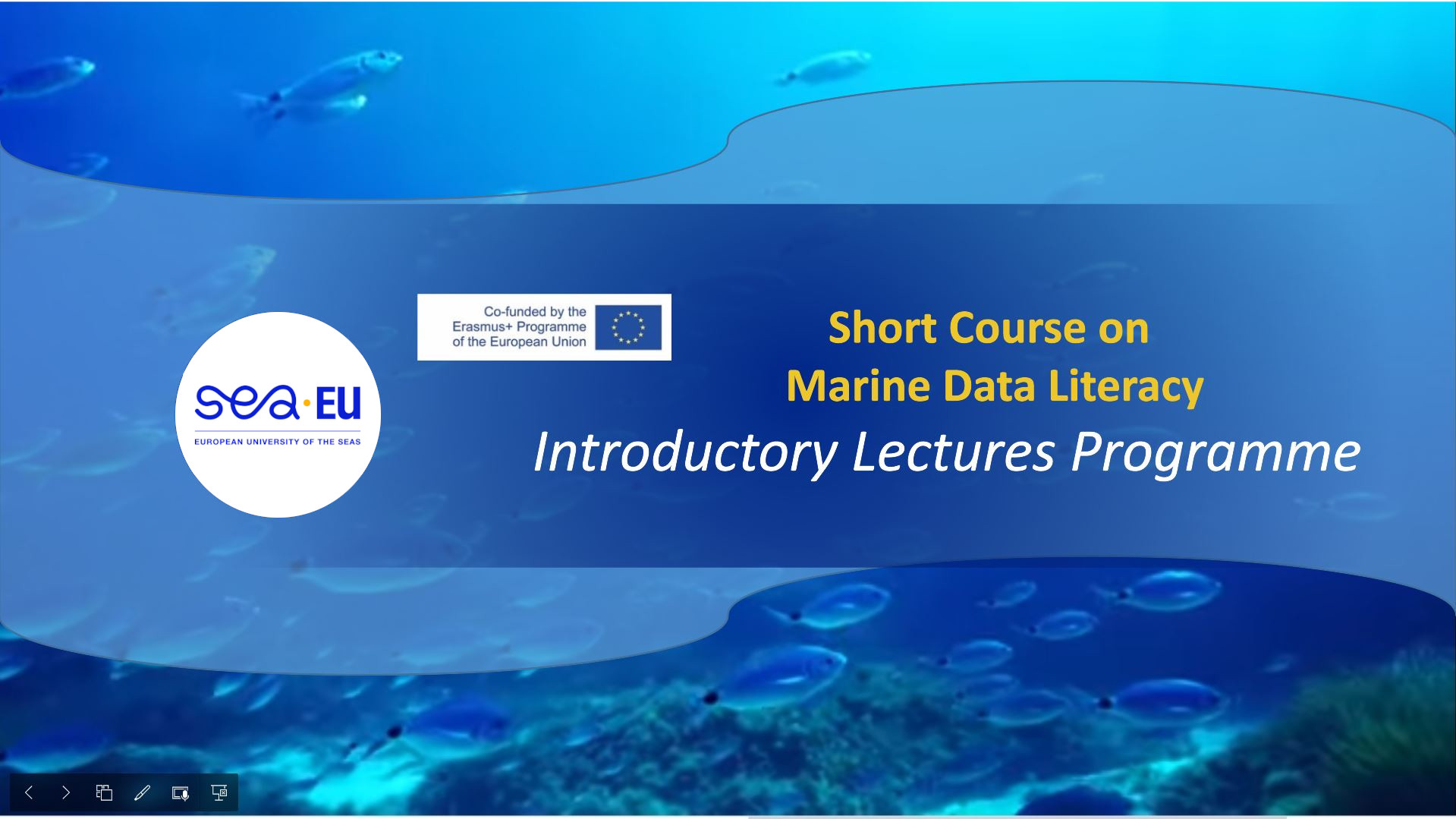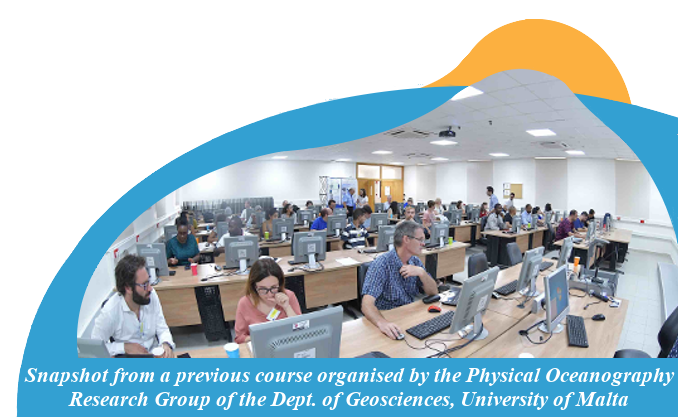
Short Course on Marine Data Literacy
An intensive preparatory course on marine data offered by the European University of the SeasSTARTING OCTOBER 2023
TIMETABLE
Schedule for BIP practical sessions at University of Split
Important information
Sunday, 3rd December 2023 |
|
| 11:00 - 13:00 | Introductory meeting / ice breaker |
| 13:00 - 15:00 | Lunch |
| 15:00 onwards | Guided tour of Split |
Monday, 4th December 2023 |
|
| 08:00 - 09:00 | Welcome coffee |
| 09:00 - 11:00 |
Practical session 1
Tides: Sea-level time series - detecting processes, stationarity and trends Frano Matić, Jadranka Šepić, Juan Alberto Jiménez Rincón & Krešimir Ruić |
| 11:00 - 11:30 | Coffee break |
| 11:30 - 14:00 |
Practical session 1 continued
Tides: Sea-level time series - detecting processes, stationarity and trends Frano Matić, Jadranka Šepić, Juan Alberto Jiménez Rincón & Krešimir Ruić |
| 14:00 - 15:00 | Lunch |
Tuesday, 5th December 2023 |
|
| 08:00 - 09:00 | Welcome coffee |
| 09:00 - 11:00 |
Practical session 2
Climate: Reliable oceanographic data sources - Introduction to sea state, wind wave and wind wave climate characterization Tomás Fernández Montblanc, Juan Alberto Jiménez Rincón, Jesús Gómez-Enri, Aleksandra Dudkowska & Krešimir Ruić |
| 11:00 - 11:30 | Coffee break |
| 11:30 - 14:00 |
Practical session 2 continued
Climate: Reliable oceanographic data sources - Introduction to sea state, wind wave and wind wave climate characterization Tomás Fernández Montblanc, Juan Alberto Jiménez Rincón, Jesús Gómez-Enri, Aleksandra Dudkowska & Krešimir Ruić |
| 14:00 - 15:00 | Lunch |
Wednesday, 6th December 2023 |
|
| 08:00 - 09:00 | Welcome coffee |
| 09:00 - 11:00 |
Practical session 3
Biology / Chemistry: Measurement and modelling of primary production Žarko Kovač, Aleksandra Cupiał, Audrey Zammit, Adam Gauci & Marijana Balić |
| 11:00 - 11:30 | Coffee break |
| 11:30 - 14:00 |
Practical session 3 continued
Biology / Chemistry: Measurement and modelling of primary production Žarko Kovač, Aleksandra Cupiał, Audrey Zammit, Adam Gauci & Marijana Balić |
| 14:00 - 15:00 | Lunch |
Thursday, 7th December 2023 |
|
| 08:00 - 09:00 | Welcome coffee |
| 09:00 - 11:00 |
Practical session 4
Environment: Computing satellite-derived bathymetry in shallow areas in SNAP and QGIS - From data formats to practical use of water column depth data Adam Gauci, Audrey Zammit, Aleksandra Cupiał, Flavio Martins & Marijana Balić |
| 11:00 - 11:30 | Coffee break |
| 11:30 - 14:00 |
Practical session 4 continued
Environment: Computing satellite-derived bathymetry in shallow areas in SNAP and QGIS - From data formats to practical use of water column depth data Adam Gauci, Audrey Zammit, Aleksandra Cupiał, Flavio Martins & Marijana Balić |
| 14:00 - 15:00 | Lunch |
Friday, 8th December 2023 |
|
| 08:00 - 09:00 | Welcome coffee |
| 09:00 - 11:00 |
Practical session 5
Safety, Security/Pollution: Oil spill detection from space with SENTINEL-1 Jesús Gómez-Enri, Flavio Martins, Krešimir Ruić & Marijana Balić |
| 11:00 - 11:30 | Coffee break |
| 11:30 - 14:00 |
Practical session 5 continued
Safety, Security/Pollution: Oil spill detection from space with SENTINEL-1 Jesús Gómez-Enri, Flavio Martins, Krešimir Ruić & Marijana Balić |
| 14:00 - 15:00 | Lunch |
Saturday, 9th December 2023 |
|
| All day | Excursion to Krka River and/or Šibenik |
Schedule for the introductory lectures
| Lecture 1 | Monday 16th October 2023 | 5:00pm-6:30pm (CEST) |
| Lecture 2 | Wednesday 18th October 2023 | 5:00pm-6:30pm (CEST) |
| Lecture 3 | Friday 20th October 2023 | 5:00pm-6:30pm (CEST) |
| Lecture 4 | Monday 23rd October 2023 | 5:00pm-6:30pm (CEST) |
| Lecture 5 | Wednesday 25th October 2023 | 5:00pm-6:30pm (CEST) |
| Lecture 6 | Friday 27th October 2023 | 5:00pm-6:30pm (CEST) |
| Lecture 7 | Tuesday 7th November 2023 | 5:00pm-6:30pm (CET) |
| Lecture 8 | Thursday 9th November 2023 | 5:00pm-6:30pm (CET) |
| Intro to Python | Friday 10th November 2023 | 5:00pm-6:30pm (CET) |
| Lecture 9 | Monday 13th November 2023 | 5:00pm-6:30pm (CET) |
| Lecture 10 | Wednesday 15th November 2023 | 5:00pm-7:00pm (CET) |
| Intro to Python | Friday 17th November 2023 | 5:00pm-6:30pm (CET) |
| Intro to Practical Sessions in Split | Friday 24th November 2023 | 5:00pm-6:30pm (CET) |
INTRODUCTORY LECTURES PROGRAMME

| Session | University | Title | Duration | Key points of the lecture | Resources |
|
Lecture 1 16th October 2023 |
Malta College of Arts, Science and Technology Aldo Drago |
Introduction to Marine Data | 1.5 hrs |
|
|
|
Lecture 2 18th October 2023 |
University of Cadiz Tomás Fernández Montblanc |
Reliable oceanographic data sources: Met-ocean data sets: climate, reanalysis, forecast and in situ data | 1.5 hr |
|
|
|
Lecture 3 20th October 2023 |
University of Malta Adam Gauci |
Online Data Portals | 1.5 hrs |
|
|
|
Lecture 4 23rd October 2023 |
University of Algarve Flávio Martins |
Introduction to Operational Modelling | 1.5 hrs |
|
|
|
Lecture 5 25th October 2023 |
EMODnet Conor Delaney *** Decade Coordination Office, IOC-IODE Jan-Bart Calewaert |
Introduction to EMODnet *** Ocean Decade's Data and Information Strategy |
1.5 hrs |
|
|
|
Lecture 6 27th October 2023 |
Université de Bretagne Occidentale Sally Close |
Accessing and transforming data | 1.5 hrs |
|
|
|
Lecture 7 7th November 2023 |
University of Cadiz Carlos Román Cascón |
Fundamentals and examples of marine data analysis | 1.5 hr |
|
|
|
Lecture 8 9th November 2023 |
University of Malta Joel Azzopardi |
Applying AI to Oceanography | 1 hr |
|
|
|
Intro to Python 1 10th November 2023 |
University of Gdańsk Gabriela Gic-Grusza |
Introduction to Python | 1.5 hr |
Part 1 is designed for beginners and those looking to refresh their Python knowledge.
|
|
|
Lecture 9 21st November 2022 |
CAU Kiel Danyial Kazempour / Peer Kröger |
Managing and Processing (Big) Scientific Data | 1.5 hrs |
Managing (Big) Scientific Data
|
|
|
Lecture 10a 15th November 2023 |
University of Split Hrvoje Kalinić |
Introduction to learning algorithms, neural networks and clustering | 1 hr |
|
|
|
Lecture 10b 15th November 2023 |
Institute of Hydraulic Engineering of the Polish Academy of Sciences Aleksandra Dudkowska |
Applying AI to Oceanography: case studies | 1 hr | Case studies and demonstration of the different AI/ML models used in Oceanography | |
|
Intro to Python 2 17th November 2023 |
University of Gdańsk Gabriela Gic-Grusza |
Introduction to Python | 1.5 hr |
Part 2 builds upon the knowledge gained in Part 1 of the Introduction to Python module.
|
|
|
Intro to Practical Sessions 24th November 2023 |
University of Split Jadranka Šepić Frano Matic |
Introduction to Physical Mobility in Split | 1.5 hr |
